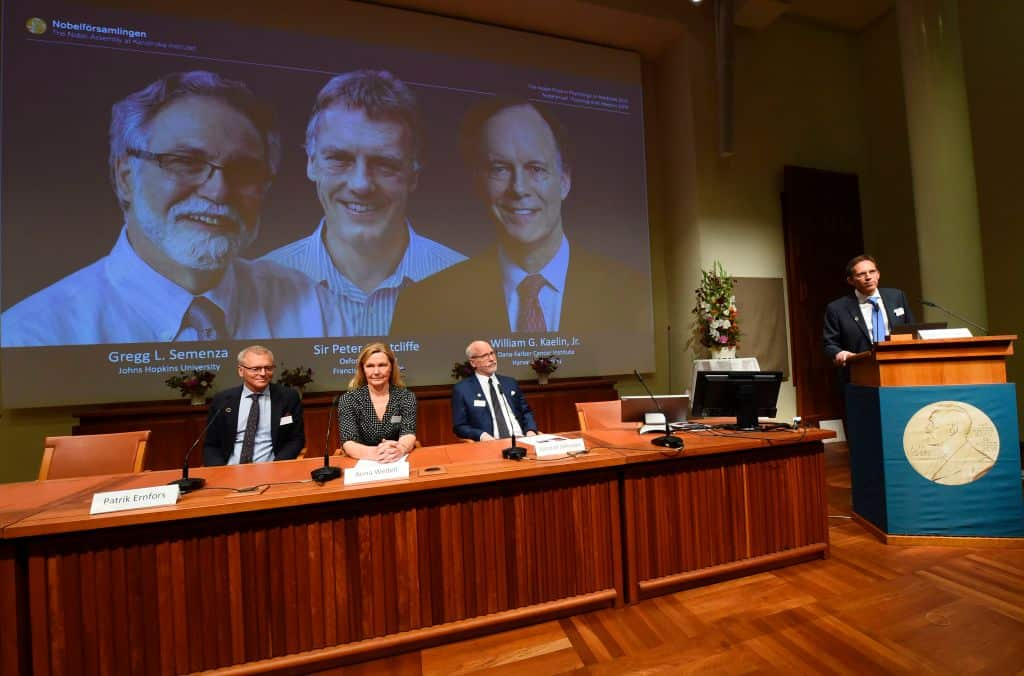US researchers William Kaelin and Gregg Semenza and Britain's Peter Ratcliffe have won the Nobel Medicine Prize for discoveries on how cells sense and adapt to oxygen availability.
"They established the basis for our understanding of how oxygen levels affect cellular metabolism and physiological function," the jury said on Monday.
Their research has "paved the way for promising new strategies to fight anemia, cancer and many other diseases."
The jury said the trio had identified molecular machinery that regulates the activity of genes in response to varying levels of oxygen, which is central to a large number of diseases.

"Intense ongoing efforts in academic laboratories and pharmaceutical companies are now focused on developing drugs that can interfere with different disease states by either activating or blocking, the oxygen-sensing machinery," the jury said.
Dr Kaelin works at the Howard Hughes Medical Institute in the US, while Dr Semenza is the director of the Vascular Research Program at the John Hopkins Institute for Cell Engineering.
Dr Ratcliffe is the director of clinical research at the Francis Crick Institute in London, and director of the Target Discovery Institute in Oxford.
The three will share the Nobel prize sum of nine million Swedish kronor (about $1.3 million).
They will receive their prize from King Carl XVI Gustaf at a formal ceremony in Stockholm on December 10, the anniversary of the 1896 death of scientist Alfred Nobel who created the prizes in his last will and testament.
Last year, the honour went to immunologists James Allison of the US and Tasuku Honjo of Japan, for figuring out how to release the immune system's brakes to allow it to attack cancer cells more efficiently.
The winners of this year's Physics Prize will be revealed on Tuesday, followed by the Chemistry Prize on Wednesday.
The Literature Prize will be announced on Thursday, with two laureates to be crowned after a sexual harassment scandal forced the Swedish Academy to postpone the 2018 award, for the first time in 70 years.
The Peace Prize will follow on Friday, with bookies predicting a win for Swedish teen climate activist Greta Thunberg on betting sites such as Ladbrokes.
The Economics Prize will wrap up the Nobel prize season on Monday, October 14.

